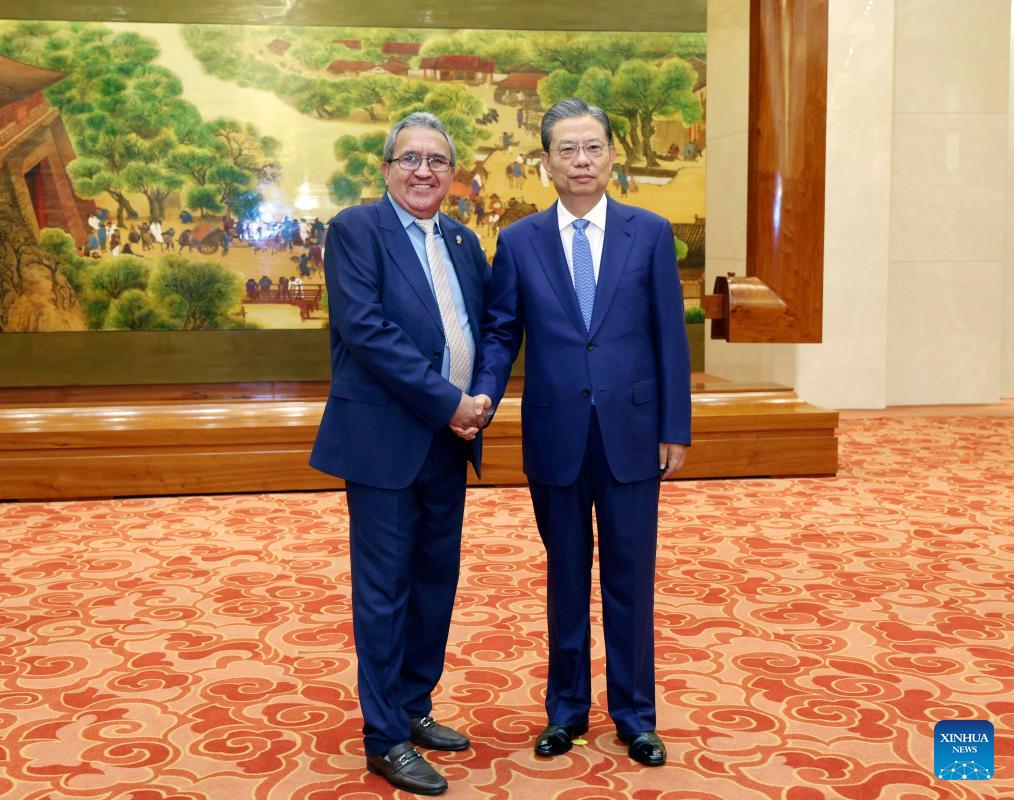

Zhao Leji, chairman of the National People's Congress (NPC) Standing
Committee, holds talks with President of the Central American Parliament, Amado Cerrud, at the Great Hall of the People in Beijing, capital of China, Sept. 22, 2023. (Xinhua/Liu Weibing)
China's top legislator Zhao Leji on Friday held talks with President of the Central American Parliament, Amado Cerrud, and they signed an agreement granting the National People's Congress (NPC) permanent observer status at the Central American Parliament.
Cerrud's visit came after the Central American Parliament voted overwhelmingly to revoke the "permanent observer status" of the so-called "Legislative Yuan" of the Taiwan region and accept the NPC of China as a permanent observer last month.
"This historic decision has drawn a lot of attention from the international community, which once again shows that the one-China principle is a universally recognized norm, and supporting and abiding by this principle is an irresistible trend of the times," Zhao said, thanking the Central American Parliament for firmly supporting China's position on issues relating to core interests.
Zhao, chairman of the NPC Standing Committee, said China's relations with Central American countries are developing with a sound momentum, and all the countries with which China has diplomatic relations in the region have joined in efforts to build the Belt and Road.
China is ready to work with relevant Central American countries to strengthen cooperation in such areas as agricultural infrastructure, investment and people's livelihoods, expand strategic consensus, solidarity and coordination, and oppose hegemonism, power politics, unilateralism and trade barriers, while jointly promoting the building of a community with a shared future for humanity, according to Zhao.
Zhao said the NPC is willing to enhance cooperation with the Central American Parliament and increase coordination with it in the Inter-Parliamentary Union and the Latin-American Parliament to jointly safeguard the rights and interests of developing countries.
The Taiwan question is the core of China's core interests, and the one-China principle is the fundamental political premise for the development of relations between the NPC and the Central American Parliament, Zhao said.
He called on the Central American Parliament to follow the right direction, constantly consolidate the consensus on the one-China principle, and remain highly vigilant against attempts by some forces to use the Taiwan question to disrupt bilateral cooperation.
Cerrud said the Central American Parliament has taken a historic, correct decision and it hopes to strengthen exchanges with the NPC and contribute to promoting cooperation between Central American countries and China on politics, economy, trade, culture and other fields.
The Central American Parliament is a six-nation parliament that groups Guatemala, El Salvador, Honduras, Nicaragua, the Dominican Republic and Panama, serving as the political institution and parliamentary body of the Central American Integration System.
